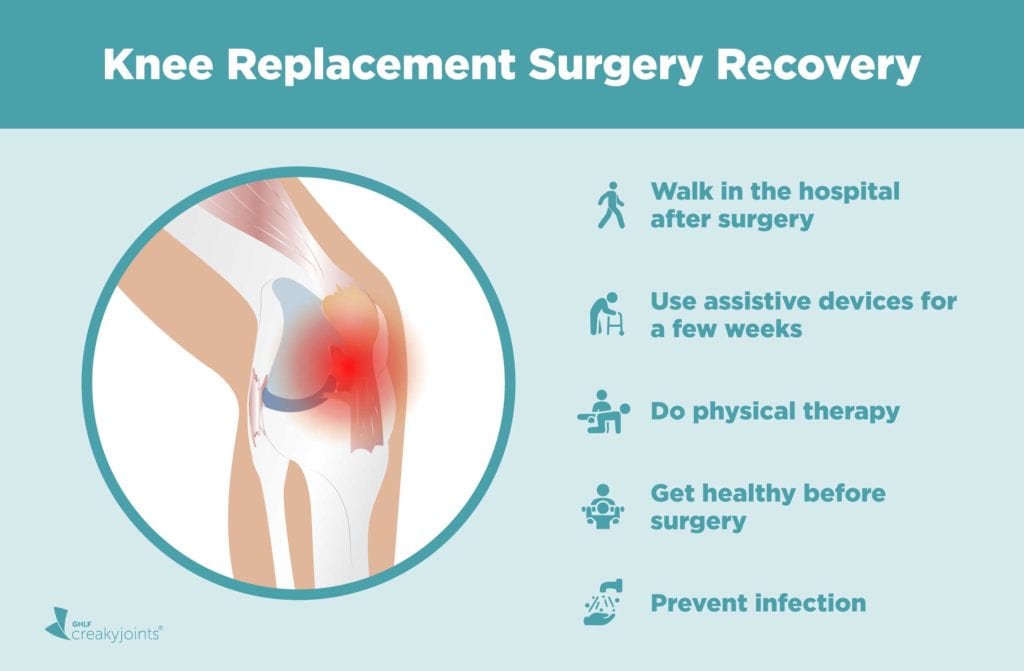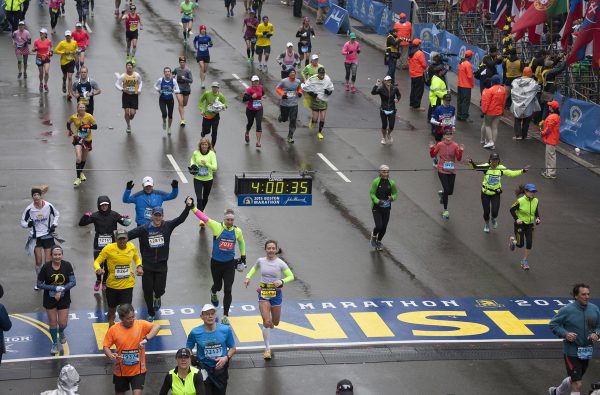Understanding the Marathon Recovery Process
Recovering from a marathon is a multi-stage process that involves immediate post-race recovery, short-term recovery, and long-term recovery. Proper recovery is essential to prevent injuries, boost overall well-being, and ensure that runners can return to their training routine stronger than before. The different stages of recovery following a marathon can be broken down as follows:
- Immediate Post-Race Recovery: The first few hours after crossing the finish line are critical for starting the recovery process. Rehydrating, refueling, and gentle stretching are key steps to take immediately after finishing a marathon. A cool-down walk can help remove lactic acid and reduce muscle stiffness. It’s also crucial to avoid alcohol and intense physical activities for at least a couple of days to give the body time to rest and recover.
- Short-Term Recovery (1-2 weeks): During the first one to two weeks post-marathon, active recovery is essential. Light activities like walking, swimming, or cycling can aid in the removal of lactic acid and promote muscle repair. Rest, sleep, and proper nutrition play a significant role in the recovery process during this period. Listen to your body and allow it to guide your training decisions to avoid overexertion and potential injuries.
- Long-Term Recovery (3 weeks and beyond): The long-term recovery phase may include cross-training, reduced mileage running, and strength training. Patience and listening to one’s body are crucial during this period. Gradually increasing training intensity and volume without risking injury is essential for a successful return to full training.
Understanding the marathon recovery process and the various factors that influence recovery time can help runners make informed decisions about their post-race routine. By following a well-structured recovery plan, runners can minimize the risk of injury, optimize their well-being, and set the stage for a successful return to training.
Immediate Post-Race Recovery
The moments following a marathon are crucial for initiating the recovery process. Proper immediate post-race recovery can help alleviate muscle soreness, reduce the risk of injury, and promote overall well-being. Here are the essential steps to take immediately after finishing a marathon:
- Rehydrate: Replace fluids lost during the race by drinking water or an electrolyte-rich beverage. Aim to consume about 20 ounces of fluids for every pound lost during the marathon.
- Refuel: Consume a snack or meal with a 3:1 or 4:1 carbohydrate-to-protein ratio within 30-60 minutes post-race. This will help replenish glycogen stores and promote muscle repair. Examples of recovery-boosting snacks include a banana with peanut butter, a bagel with turkey and cheese, or chocolate milk.
- Gentle Stretching: Perform light stretches to help reduce muscle stiffness and soreness. Focus on stretching the major muscle groups, such as the calves, hamstrings, quadriceps, and hip flexors.
- Cool-Down Walk: Take a leisurely walk for 10-15 minutes to help remove lactic acid from the muscles and promote circulation. This can aid in the recovery process and reduce the risk of injury.
- Avoid Alcohol and Intense Activities: Refrain from consuming alcohol for at least a couple of days after the marathon, as it can hinder recovery and exacerbate inflammation. Additionally, avoid intense physical activities for at least 2-3 days to give your body time to rest and recover.
By following these immediate post-race recovery steps, runners can kickstart their journey to full recovery and minimize the risk of injury and setbacks. Remember, the goal is to allow your body to rest and recover, so be patient and enjoy the process.
Short-Term Recovery: The First One to Two Weeks
Short-term recovery is a critical phase in the marathon recovery process, typically lasting one to two weeks post-race. During this period, active recovery plays a significant role in aiding the removal of lactic acid, promoting muscle repair, and preparing the body for long-term recovery. Here’s what you should focus on during the first one to two weeks after a marathon:
- Active Recovery: Engage in light activities such as walking, swimming, or cycling. These low-impact exercises can help promote blood flow, reduce muscle stiffness, and speed up recovery without causing additional stress on the body. Aim for 20-30 minutes of light activity per day, interspersed with periods of rest.
- Rest and Sleep: Ensure you get adequate rest and sleep during the short-term recovery phase. Aim for 7-9 hours of sleep per night to help your body repair and rejuvenate. Listen to your body and take extra rest days if needed, as fatigue and soreness can linger during this period.
- Proper Nutrition: Maintain a balanced diet rich in anti-inflammatory foods, lean proteins, and complex carbohydrates. This will support muscle repair, replenish glycogen stores, and aid in overall recovery. Include foods like salmon, berries, nuts, leafy greens, whole grains, and lean meats in your post-marathon meals and snacks.
By focusing on active recovery, rest, sleep, and proper nutrition during the first one to two weeks after a marathon, you can set the foundation for a successful long-term recovery and minimize the risk of injury and setbacks. Remember, patience and self-care are essential components of the recovery process, so take the time to listen to your body and prioritize your well-being.
Long-Term Recovery: Three Weeks and Beyond
Long-term recovery is a crucial phase in the marathon recovery process, typically lasting three weeks or more. During this period, it’s essential to focus on cross-training, reduced mileage running, and strength training to aid in the recovery process and gradually rebuild fitness levels. Here’s what you should focus on during long-term recovery:
- Cross-Training: Engage in low-impact activities like swimming, cycling, or using an elliptical machine. Cross-training can help maintain cardiovascular fitness while reducing the stress on your joints and muscles. Aim for 30-45 minutes of cross-training, 2-3 times per week.
- Reduced Mileage Running: Gradually reintroduce running into your routine, starting with short, easy-paced runs. As your body adapts, slowly increase your running distance and intensity. Maintain a conversational pace during runs and avoid pushing yourself too hard, too soon. Aim for 2-3 runs per week, with a long run every 7-10 days.
- Strength Training: Incorporate strength training exercises into your routine to improve muscular imbalances, increase power, and reduce the risk of injury. Focus on exercises that target the core, hips, and legs. Aim for 2-3 strength training sessions per week, allowing for adequate recovery between sessions.
- Patience and Listening to Your Body: Be patient during the long-term recovery process and listen to your body. If you experience excessive fatigue, soreness, or pain, take extra rest days or adjust your training plan accordingly. Remember, the goal is to gradually rebuild your fitness levels without risking injury or setbacks.
By focusing on cross-training, reduced mileage running, strength training, and patience during the long-term recovery phase, you can ensure a smooth transition back to full training and minimize the risk of injury and setbacks. Enjoy the process of rebuilding your fitness levels and remember that consistency and self-care are key components of a successful long-term recovery.
Individual Factors Affecting Recovery Time
Recovery time following a marathon can vary significantly from one runner to another due to several individual factors. Understanding these factors can help you tailor your recovery plan and set realistic expectations for your post-marathon journey. Here are some of the key factors that can influence recovery time:
- Age: Older runners typically require more time to recover due to the natural aging process, which can result in reduced flexibility, muscle mass, and slower recovery rates. Younger runners may bounce back more quickly, but it’s essential for all runners to prioritize recovery, regardless of age.
- Fitness Level: Highly trained runners with a strong fitness base may recover more quickly than less experienced runners. A robust fitness level can help the body better withstand the stress of a marathon and adapt to the recovery process more efficiently.
- Running Experience: Experienced runners with a history of participating in multiple marathons may recover more quickly than first-time marathoners. Seasoned runners often have a better understanding of their bodies and can recognize the signs of fatigue and overtraining, allowing them to adjust their training plans accordingly.
- Marathon Intensity: The difficulty and intensity of the marathon can significantly impact recovery time. Running a hilly course, battling harsh weather conditions, or pushing for a personal best time can all contribute to a longer recovery period.
By considering these individual factors, you can create a personalized recovery plan that addresses your unique needs and circumstances. Remember, proper recovery is essential for preventing injuries, maintaining overall well-being, and ensuring a successful return to training. Listen to your body, be patient, and allow yourself the necessary time to recover after a marathon.
The Role of Nutrition in Marathon Recovery
Proper nutrition plays a crucial role in the marathon recovery process, aiding in muscle repair, reducing inflammation, and replenishing energy stores. To optimize your recovery, focus on incorporating anti-inflammatory foods, maintaining hydration, and ensuring adequate protein intake. Here are some tips and examples for each aspect of recovery nutrition:
- Anti-Inflammatory Foods: Consuming anti-inflammatory foods can help reduce inflammation and promote recovery. Some examples of anti-inflammatory foods include:
- Berries (blueberries, raspberries, strawberries)
- Leafy greens (spinach, kale, collard greens)
- Fatty fish (salmon, mackerel, sardines)
- Nuts and seeds (almonds, walnuts, chia seeds, flaxseeds)
- Turmeric and ginger
- Hydration: Proper hydration is essential for maintaining overall health, regulating body temperature, and facilitating recovery. Aim to consume at least half your body weight in ounces of water daily, and increase your intake if you’re sweating heavily or engaging in physical activity. Additionally, consider incorporating hydrating beverages like herbal tea, coconut water, or low-sugar sports drinks into your daily routine.
- Adequate Protein Intake: Protein is essential for muscle repair and growth. Aim to consume 1.2-1.6 grams of protein per kilogram of body weight daily during the recovery period. Some protein-rich foods to include in your diet are:
- Lean meats (chicken, turkey, beef)
- Fish (salmon, tuna, cod)
- Eggs
- Dairy (milk, yogurt, cheese)
- Legumes (lentils, chickpeas, black beans)
- Tofu and tempeh
By focusing on anti-inflammatory foods, hydration, and adequate protein intake during the marathon recovery process, you can support your body’s natural healing abilities and ensure a smooth transition back to full training. Remember, proper nutrition is a key component of overall recovery and should be prioritized alongside rest, sleep, and active recovery.
The Psychological Aspects of Marathon Recovery
The mental and emotional aspects of marathon recovery are just as important as the physical aspects. After investing significant time, effort, and energy into training for and completing a marathon, it’s natural to experience a range of emotions during the recovery period. Here are some common psychological experiences during marathon recovery and tips on how to maintain motivation and mental well-being:
- Post-Race Letdown: After the excitement and adrenaline of race day, it’s common to feel a sense of emptiness or even depression. Acknowledge these feelings and allow yourself time to process the experience. Consider engaging in activities that bring you joy and fulfillment, such as spending time with loved ones, pursuing hobbies, or volunteering.
- Feelings of Accomplishment: Completing a marathon is a significant achievement, and it’s essential to celebrate your success. Reflect on your training journey, acknowledge your growth, and take pride in your accomplishment. Share your experience with friends, family, and running communities to reinforce your sense of achievement.
- Desire to Set New Goals: With the marathon behind you, you may feel inspired to set new running-related goals. Channel this motivation into planning your next training cycle or exploring new running-related challenges. Be mindful, however, of setting realistic and achievable goals to avoid burnout or injury.
- Maintaining Motivation: During the recovery period, it’s crucial to maintain motivation and momentum. Establish new short-term goals, such as improving your running form, increasing your weekly mileage gradually, or focusing on strength and cross-training. Track your progress and celebrate small victories to stay engaged and motivated throughout the recovery process.
By understanding and addressing the psychological aspects of marathon recovery, you can maintain motivation, mental well-being, and a positive outlook during this critical period. Remember, the recovery process is an opportunity to reflect, recharge, and prepare for your next running adventure.
Returning to Training: A Gradual Approach
Resuming your running routine after a marathon requires patience, discipline, and a well-thought-out plan. Returning to training too quickly can lead to injuries, burnout, and decreased performance. By following a gradual approach, you can safely and effectively rebuild your fitness levels and minimize the risk of setbacks. Here’s how to get started:
- Set Realistic Goals: Establish clear, achievable goals for your post-marathon training. These goals should focus on rebuilding your fitness base, improving weaknesses, and preventing injuries. Avoid setting time-based goals for several weeks to allow your body ample time to recover.
- Monitor Progress: Regularly assess your progress and adjust your training plan as needed. Pay attention to indicators like heart rate, perceived exertion, and recovery time. Use this information to guide your decision-making and ensure you’re not overexerting yourself during the early stages of your training cycle.
- Adjust Training Plans: Modify your existing training plans to accommodate your current fitness level and recovery needs. This may include reducing overall volume, intensity, or frequency of workouts. Gradually increase these factors as your fitness and recovery abilities improve.
- Incorporate Cross-Training: Cross-training activities like swimming, cycling, or strength training can help maintain fitness while reducing the impact on your joints. Aim to include 1-2 cross-training sessions per week during the initial stages of your return to training.
- Prioritize Rest and Sleep: Ensure you’re getting adequate rest and sleep to support your body’s natural recovery processes. Aim for 7-9 hours of sleep per night and consider incorporating naps or relaxation techniques into your routine during high-volume training weeks.
- Stay Patient: Remember that recovery takes time, and it’s essential to be patient throughout the process. Listen to your body, acknowledge your achievements, and enjoy the journey of rebuilding your fitness levels.
By following a gradual approach to returning to training after a marathon, you can minimize the risk of injury, optimize your recovery, and set the stage for long-term success. Embrace the process, stay consistent, and trust in your ability to adapt and grow as a runner.




:max_bytes(150000):strip_icc()/How-long-does-a-concussion-last-5186337_final-766de110b6174b02937e4175f7cd6074.jpg)


